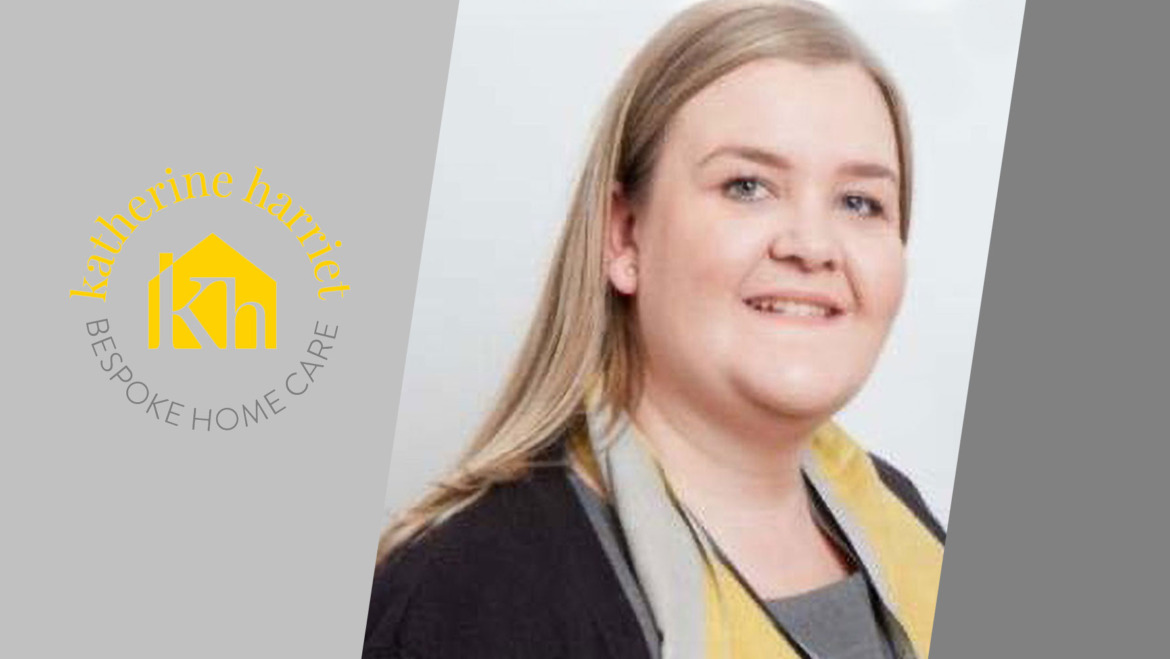Rebecca Tilby, Registered Manager at Katherine Harriet Ltd looks at using positive and supportive language when caring for someone with Dementia.
Rebecca Tilby Commented ‘Caring for someone with Dementia is a full-time job. Sometime without even realising we can make this job harder for ourselves and the ones that we are caring for. Below are some proposals on how language can improve this care and enable up to be more supportive and positive about the care that is received. By ensuring the language used to talk about dementia is correct, we can work towards putting an end to the stereotypes, stigmas and myths that also surround it’.
Dementia – Using Positive and Supportive Words
Language is powerful. Not only does do we all use this for its main purpose a communication tool, but it also sets out our cultures and beliefs. The majority of people do not understand how they broach certain topics and are genuinely surprised when they realise, they have made a mistake.
Here is a quote from a report written by the Alzheimer’s Society:
“After all, the words we use affect the way we think, and the way we think affects how we behave. The language we all use has the power to impact the lives of millions of people around the country.”
While we understand living with dementia is life-changing, challenging, and stressful for those who have been diagnosed with the condition it can also cause the same distress for those supporting them, we at Katherine Harriet believe people do not have to suffer with dementia, so we always encourage staff to and carers to use positive, inclusive language that empowers, respects, values and treats people with the dignity they deserve.
People with dementia are not victims.
We must remember that each person living with dementia is an individual with a history, a personality, a character – they are not defined by dementia. Instead of talking about someone with pity, referring to them as ‘sufferers’ or ‘victims’, we at Katherine Harriet use more positive terms that state the facts, such as:
· Mrs S is living with dementia.
·Mr P is affected by dementia.
And we always where possible depending on what stage of dementia the person is at, include them and ask them what they prefer.
Dementia is not a disease.
Dementia is a set of symptoms caused by diseases that affect the brain. One such disease is Alzheimer’s, but there are many more that love insert the umbrella term dementia. But dementia itself is not a disease or an illness, so it shouldn’t be referred to as one. Instead, here at Katherine Harriet we like to use ‘condition’.
Distressed, not difficult.
When supporting someone who is experiencing a change in behaviour, we remember that behaviour is often an expression of needs that need to let or sometime the person is in pain but cannot communicate it.
We avoid labels like ‘a wanderer’ or ‘a shouter’. This is impersonal and, again, omits finding the reason for the behaviour. ‘Wandering’ gives the idea of strolling aimlessly, when, in fact, a person could be walking about with a purpose that is unknown to you.
You are supporting, not doing.
A large part of why we should be careful with the language we use around dementia is that we are always thinking of how a person feels when they hear what we are saying. Think of the difference between ‘Alan needs feeding’ and ‘Alan needs support with eating’, or ‘Mary needs washing’ and ‘Mary needs support with washing’. The second options are much more positive.
Katherine Harriet empowers the individuals living with dementia, putting them first, building self-esteem and including them in the conversation; and we also work with our staff to change the view of dementia. For them to truly learn about dementia it must be talked about in the appropriate way.
18.06.2021 / Rebecca Tilby – Registered Manager

